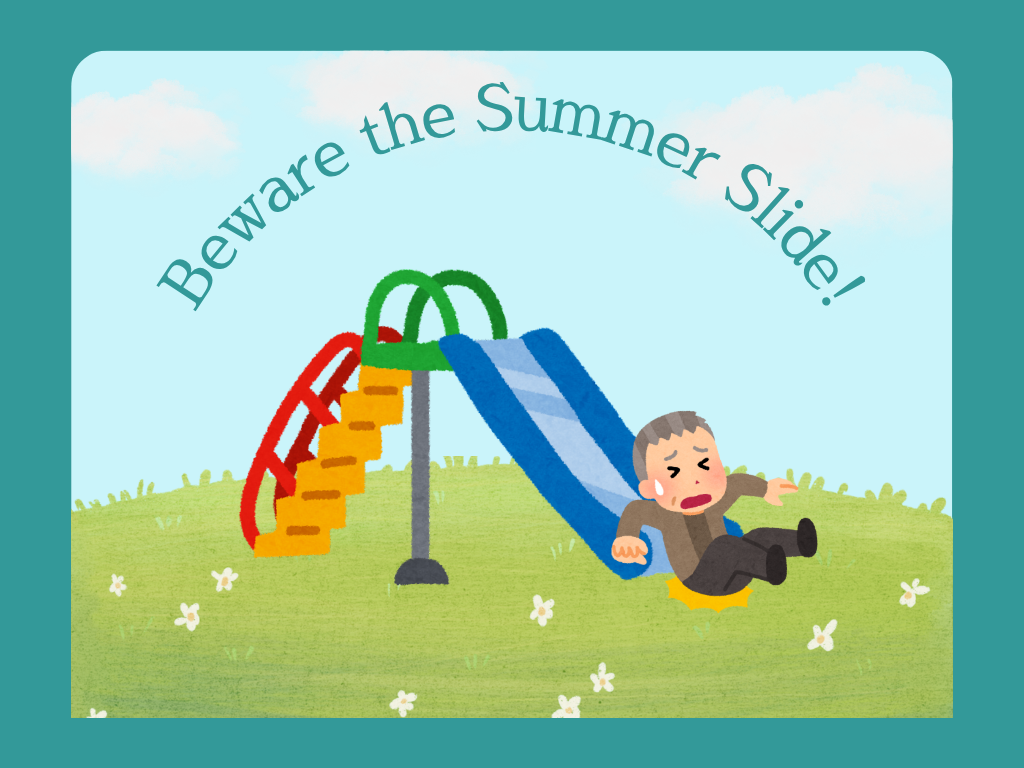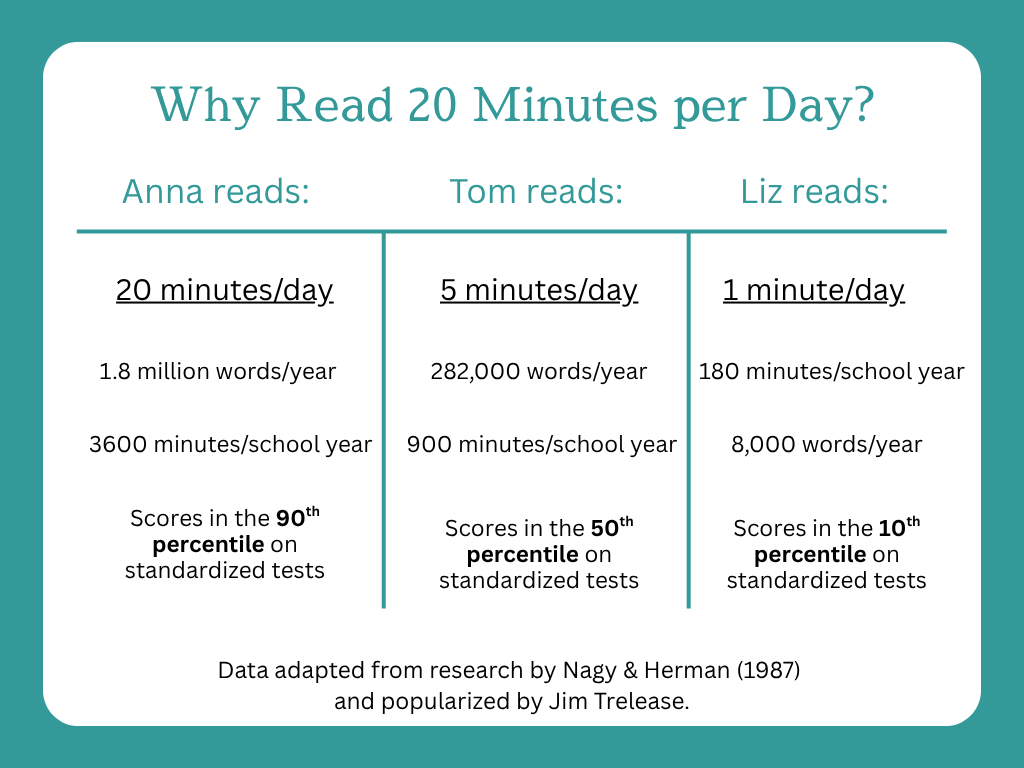
You’d think the summer slide would be fun. Your kids would go there during school vacation, slide to the bottom, maybe even go to a water park and go down a water slide and splash into a refreshing pool!
Well, it’s not that kind of slide, and it’s not much fun, although it can be just as slippery.
The summer slide is a well-documented phenomenon in which students lose progress during summer vacation. Research shows that, on average, students can lose about one to two months of academic progress in reading and math over the summer. Those are the average students. What about students who are struggling?
An even steeper slide
For students who are already behind, that summer slide can be even steeper, widening the gap between them and their peers and making it harder to catch up once school starts again.
What does that mean for struggling readers?
If your child is able to read stories or books, reading is the solution. More on that a bit later. But for students who are unable to read books yet, the path uphill is a bit rockier.
“Things like decoding, letter knowledge, and word reading skills are very susceptible to decay without frequent practice,” says James S. Kim, Professor of Education at the Harvard Graduate School of Education.
What can you do to help your child?
If your child can read stories or books, just reading daily will help. Ideally, they’ll read for 20 minutes a day, but if that’s more than they can handle anywhere from 5 to 15 minutes will help a lot.
Why 20 minutes? This chart, based on research by Nagy and Herman (1987), shows the effect of reading 20 minutes per day. If your child finds that too difficult though, don’t push it. Start small and see if you can add a minute or two over time.

But what about kids who are still struggling with decoding and can’t read books?
That’s where decoding strategies come in (although you should definitely read aloud to your child). Learning to match sounds to letters (the symbols, or graphemes, rather than the letter names), hear the individual sounds in words (i.e., phonemes, meaning the smallest units of sound), and blend them into words, are the first keys to unlocking reading.
For a struggling reader, focused decoding instruction over the summer can be a game-changer. It can mean the difference between losing two months of progress and gaining two months – bringing your child to school in the fall a full four months closer to grade level rather than two months behind, as they would have been without that support.
If you can help your child learn to decode, by all means do so! It requires a great deal of patience and encouragement, as well as a knowledge of excellent decoding instruction methods. And yes, you can do that on your own.
If you’d like my help, contact me or set up a free consultation.
And then go enjoy school vacation with your kids!
Happy Summer!
Janet

This is so interesting and well explained. It seems a no brainer to help a child with reading over the summer. I’m not sure about decoding though – I’d love to find someone with the skills and the patience to help with my child. Do you do online tutoring? TIA.
Yes, I do! If you have questions, feel free to send a message via my Contact Me page (in the menu above). If you’d like to set up a complimentary 30-minute consultation, here’s a link to my booking page:
https://koalendar.com/e/complimentary-consultation-7
Thanks for your kind comment!
Janet